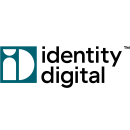There are three key “firsts” in the history of the United States’ human space exploration: the first astronaut to go to space, the first astronaut to orbit Earth and the first astronauts to reach the moon.
Behind each mission was mathematician and NASA scientist Katherine Johnson. She calculated the path for the Freedom 7’s orbit around Earth and the location and timing for the Apollo 11 mission to the Moon. Her work made the space shuttle program possible.
But Johnson faced significant barriers. Her career began in the era of segregation, and as a woman, she was relegated to work for male engineers, left out of important meetings and referred to as “the girl” by astronauts despite her immense talent. Her name was also left off of research reports she co-authored.
Johnson asked questions and refused to be overlooked, and it was this assertiveness and relentless belief in herself that helped her to become an invaluable member of NASA’s space program and a leader.
Since Johnson’s time, significantly more women work in tech and receive recognition for that work. But propelling women into leadership positions in the industry has been an uphill battle. Just 19 percent of senior vice presidents and 15 percent of CEOs at tech companies are women, according to statistics compiled by Zippia. Gender bias is seen as an obstacle to receiving promotions by 39 percent of women in tech, compared to eight percent of men.
The women who have made it to the top in tech today did so on the shoulders of women like Johnson and other trailblazing female leaders. They’ve forged their own paths and they aren’t leaving the women who come after them behind.
Seven Seattle directors, vice presidents, C-suite executives and professionals reflected on their career journeys and the lessons they learned along the way.
Qualtrics developed the Qualtrics XM Platform™, software that helps organizations collect, manage and act on experience data. The platform allows teams, departments or companies to manage customer, product, employee and brand experiences in one place.
What’s the most important lesson you learned as you grew your career?
I learned an important lesson when I changed careers. I had spent 13 years in newspapers and moved to a tech company. Unfamiliar with the culture, I found myself sitting silently in meetings I didn’t understand and struggling to figure out where I fit in. The more I didn’t participate, the more disengaged I became as the meetings continued to veer so far afield that it was impossible for me to contribute.
Over time, I learned to ask myself, “Why am I in this meeting?” Then I could shift the direction of the conversation in a way that my skills and experience were relevant. It’s not enough just to chime in; I had to work to influence the meeting. Sometimes that means interrupting to admit I don’t know what’s going on and asking for clarification about what we are trying to accomplish.
I learned a lesson from the looks and relieved sighs from my colleagues. Usually, I’m not the only one lost in a sea of acronyms. By speaking up, I’ve helped myself and others add value to high-impact projects while building my career and saving myself hours of confusion.
How do you stay motivated and inspired as a leader, and how do you try to motivate and inspire other women at Qualtrics?
I’m motivated by the addictive process of setting specific goals and then gaining buy-in from my team and colleagues, working together toward them and then celebrating when those goals are achieved. This repeatable exercise is terrifying, creative, challenging and fun. I invite other women to join me in this exhilarating process and to be vulnerable about the scary parts. We are all flying by the seat of our pants and that is actually the only way to get where we are going.
Don’t pretend you wrote that amazing email at your desk if you nailed it from the school pick-up line.”
What advice do you have for the next generation of women in tech, and why is this advice important?
As a woman I have sometimes felt like I had to keep the messy parts of myself under wraps. Whether it’s a call from the school nurse or a virtual meeting I have to hop on from the hair salon, it’s tempting to spackle over the busy, chaotic aspects of our lives. But having a personal life and a family doesn’t detract from my work. It makes me more efficient, empathetic and effective.
The more technology advances, the more valuable our humanity, creativity and intuition will become. These are valuable skills, and they will be increasingly critical to success. I encourage the next generation of women in tech to bring their full hearts to work along with their brains. Don’t pretend you wrote that amazing email at your desk if you nailed it from the school pick-up line.
Carrot Fertility provides comprehensive clinical programs that support members and their families throughout the fertility journey.
What’s the most important lesson you learned as you grew your career?
Until I joined Walmart in 2016, I thought that if I worked hard enough and consistently demonstrated my abilities and intelligence, the opportunities would show up. I received excellent performance reviews everywhere I worked, but I watched as others seemed to advance, even though I knew I was just as capable — if not more so. I was frustrated and didn’t understand why I was overlooked so often.
I learned that being “good” is just the admission price to career growth. As you advance in your career, you must focus on relationships, and you should have at least one leader with influence who knows you and your work and is willing to spend political capital to ensure you have opportunities for promotions and special projects. I don’t think enough young women understand how critical sponsorship is to get to the next level. In my experience, even where I’ve offered my time to get to know younger lawyers, most don’t follow up. I think they still believe that workplaces are a meritocracy. But in reality, you must have a sponsor to advance.
How do you stay motivated and inspired as a leader, and how do you try to motivate and inspire other women at Carrot Fertility?
I connect with other leaders who are my peers on a consistent basis. It helps to know that my goals, dreams and frustrations are not unique and to have a group of leaders on my personal “board of directors” who care about me, hold me accountable and give me the honor of serving the same role in their lives.
I also remember how far I’ve come. I was deeply insecure when I first began my legal career, and it took me years to recognize that the only difference between where I was and where I wanted to be was my own self-limiting beliefs and lack of confidence. When I have difficult days, I try to remember what that young lawyer believed about herself and how shocked she’d be to see how much I’ve grown. And I remind myself that most of us are just trying to figure things out day by day.
I mentor and inspire other growing leaders by keeping my door open and being available. I never want to be the leader who is inaccessible and unapproachable. I believe deeply that leaders must be who they needed when they were the person sitting across from them. And I love developing talents and abilities in other women that they don’t see in themselves.
What advice do you have for the next generation of women in tech, and why is this advice important?
Always remember that you belong at the table and that your voice, ideas and skills are needed. Hire a coach early in your career if you have the financial means and identify the things holding you back. There are certain things about corporate America and tech that will take a long time to change. Don’t let anyone convince you that those issues will stop you from growing to whatever level of leadership inspires you.
Always remember that you belong at the table and that your voice, ideas and skills are needed.”
Also, be a student of leadership and of the industry you choose. Learning to connect the dots is a powerful skill set, and it’s often something you learn by staying informed, reading a lot of books and listening to podcasts. The leaders you eventually work with will want your opinion, and it’s helpful to have a source that isn’t just your own brilliance. It’s a small thing, but it goes a long way.
So often, we feel that we have no agency over our careers, and we have to accept situations for what they are. But I’ve learned that if you move in the direction you want to go, even if it is in small ways — like taking a leadership course or listening to a podcast discussing an industry you want to work in — it is amazing how often doors will open for you.

IonQ builds quantum computers to help solve complex problems and transform business, society and the planet for the better.
What’s the most important lesson you learned as you grew your career?
My first work role model was a Ph.D. scientist who was a few years older than me. I learned a lot observing her in action as she took customer calls, managed team dynamics, navigated her career and made decisions. She was a formidable intellect who attended MIT and Princeton, and during our first meeting, I assumed we’d talk about research and development. Instead, she went up to the white board and started drawing the company’s org chart, circling names and scribbling arrows to denote relationships. To this day, I hold “Org Chart Trivia” for early career folks, where I flash an org chart with blanks and ask who belongs there, their role and why it’s important.
How do you stay motivated and inspired as a leader, and how do you try to motivate and inspire other women at IonQ?
I am mindful that every interaction can be energizing or the opposite. Everything adds up to create a culture, from small gestures like having coffee together and emailing kudos to your boss; to employee-led affinity networks; to formal mentoring and training; to inclusive workplace benefits. For most people, the content and purpose of their day-to-day work is what drives deep satisfaction. I try to connect people to meaningful projects and highlight the positive impact they make. Watching my team take pride in their contributions is really inspiring to me.
What advice do you have for the next generation of women in tech, and why is this advice important?
When I first entered the workforce, “executive presence” meant something very different than it does today. There’s a growing recognition that authentic, diverse perspectives are vital to healthy teams. My advice to the next generation of women is to identify and own the unique strengths you possess and to build a network of allies. I don’t have the loudest voice in the room, but many people have thanked me in the hallway for representing their views. I give others permission to offer feedback. After meetings, I’ll often call a colleague and ask if I could’ve done anything better. I also purposely team up people with complementary strengths. For years, I worked closely with a colleague who was affable and even-keeled. He was a counterbalance to my quicker, sharper instincts. I went to him for sanity checks whenever I needed another perspective — which could be several times a day!
Identity Digital operates a portfolio of top-level domains, an innovative registry services platform and a registrar for customers to discover, register, support and use domain names. These domain names help people build, market and own their digital identities.
What’s the most important lesson you learned as you grew your career?
It’s crucial to identify where we want to go, when we want to get there and how we want to achieve those milestones. It’s often helpful to identify a person, either someone you know personally or a public figure, that has embarked on an aspirational and personally relevant path for you to emulate. And then ask yourself, “What skills does this person have? What experiences? Which of those skills and experiences do you have? Which do you lack?” When you make choices as you tackle projects or change jobs, each of those choices should help you acquire one of those missing skills and experiences that will bring you closer to your career goals.
I first learned about this approach from Mike Steib, who has since written The Career Manifesto, a must-read guide that has circulated throughout tech. When I was seven months pregnant with my first child, we sat down for one of his famed career chats. He posed pointed questions, which prompted me to rethink my career path from the trap of, “How do I get promoted?” to “How can I achieve the life I want to live?”
How do you stay motivated and inspired as a leader, and how do you try to motivate and inspire other women at Identity Digital?
I stay motivated by helping others. I’ve been blessed to work with some of the greatest marketers in the world, and I love that I can pass along what I’ve learned from those experiences. My hope is that in sharing those experiences, I can help develop and inspire the team I get to work with today.
I’m also motivated by my children. It’s important for them to see a mother succeed in business without sacrificing the time she spends with her family.
I am inspired every day by the creativity I see on the internet. When I worked at Twitter, we knew that regardless of what content we put out in the world, the people on the platform would respond with 10 times the creativity, joy and humor. I am routinely humbled by how clever folks are as they share content from memes to hot takes to demands for justice.
Have faith in your abilities. You don’t need to have the exact experience to be qualified for a role.”
What advice do you have for the next generation of women in tech, and why is this advice important?
There’s a rumored statistic that you have to ask a woman seven times to run for political office before she’ll consider it, but a man only needs to be asked once. While this statistic is unvalidated, it sounds true because the sentiment behind it feels truthful. Women often believe they need to possess all the skills and experiences for a role while men often believe they are capable of figuring it out on the job.
My advice for this next generation of women is to have faith in your abilities. You don’t need to have the exact experience to be qualified for a role. You need a point of view on how you would tackle that role.
Tactically speaking, whenever you apply for a role, build a 12- to 18-month plan for what you would do in that position. What are the problems you would solve? How would you prioritize work? You may never share this plan with anyone you work with, but the exercise will force you to think strategically at a higher level, which will allow you to become a stronger leader in your organization.
RealSelf helps people choose aesthetic procedures and connect with the right doctor. With reviews, ratings and information provided by board-certified doctors, people can explore their options, from skincare to cosmetic surgery.
What’s the most important lesson you learned as you grew your career?
Learning to negotiate for myself was full of cringe moments. My parents are Taiwanese immigrants, and in Taiwan, it’s common to barter in stores. You negotiate hard — almost to a painstaking degree — over the equivalent of $3. My mom did this a few times in the U.S., and I remember feeling embarrassed about negotiating.
Early in my career, I received a job offer, and I wanted to push my start date back. I was so nervous about asking for it. On the phone, the hiring manager asked me, “So, what is it? Do you want more money?” And believe it or not, I said no! I was so nervous about asking for a later start date, I turned down an open invitation for more money.
I felt cringey in a different way for a long time. Why didn’t I say yes? Those were lost dollars out of my pocket. I had to accept that negotiating is a normal part of advocating for myself. I put the work into learning how to negotiate by gathering information, making the ask and navigating the conversation. It took a lot of practice and yes, more cringe moments. That work has been hugely impactful for my career.
How do you stay motivated and inspired as a leader, and how do you try to motivate and inspire other women at RealSelf?
My management style centers on delivering results by building and motivating my bench. There are three key principles to doing this. First, set up the right systems for success. Give your team clear goals and direction so they understand what they are running toward. Give them the creativity and freedom for determining the “how” and empower them to solve the problems. Set up the right rhythm of the business to provide guidance, remove roadblocks and hold them accountable to those goals. In meetings, lead with curiosity and seek to understand their thinking. Don’t assume, ask questions.
Second, positive and constructive feedback is essential. Celebrate success and give praise often to reinforce a positive, one-team culture. Provide real-time and specific feedback and ask for it in return.
And third, focus on professional development. Have conversations about career growth regularly and ask your team what energizes and de-energizes them. Ask them what they are working on developmentally and find opportunities to support their growth.
What advice do you have for the next generation of women in tech, and why is this advice important?
Giving and receiving hard feedback is, well, hard. People are afraid to hurt others’ feelings. They feel like nothing will change. It can be uncomfortable work, but normalizing difficult feedback as part of your day-to-day is one of the most impactful things you can do for your career.
Reframe hard feedback as a gift and as coaching. Adam Grant, a professor at my business school, said: “The people who are nice to you aren’t always being kind to you. Saying what you want to hear is nice. People sugarcoat feedback to make you feel good today. Sharing what you need to hear is kind.”
Chen’s Principles of Feedback
The work you put into coaching others and helping others coach you will lift all boats.
- Exchange feedback in real time — after you’ve observed something in a group meeting, a Slack exchange or a one-on-one.
- Use this template: “I observed X behavior, which had Y impact. What do you think?” Asking their thoughts invites the other person to the table to engage in a conversation. Then, “Here’s a suggestion on how we can improve moving forward.” Workshop together!
- Be reciprocal. Consistently ask for feedback in return, which will build trust and normalize coaching.
Highspot’s sales enablement platform helps organizations equip, train and coach their seales teams. The solution also provides strategy guidance and analytics that inform future actions.
What’s the most important lesson you learned as you grew your career?
There is a saying, “If you want to go fast, go alone. If you want to go far, go together.” Building relationships is absolutely essential to successfully reaching new heights in your career, but perhaps even more importantly, to your team’s success.
I actually learned one of the most important lessons about creating connections from the three Rs of relationship satisfaction: resilience, respect and responsiveness.
These concepts apply to the healthy relationships that you should work to establish throughout your career. Resilience is relevant, especially right now. These last few years have tested our relationship endurance as we’ve adapted to an almost ever-changing set of challenges that impact us both personally and professionally.
At Highspot, we have guiding principles, including Most Respectful Interaction, which is about engaging with people respectfully and with the assumption that they have good intentions and thoughtful viewpoints. That ensures we tailor our own responses accordingly.
The more women rally to support each other, the more we’ll be able to tip the scales of equality in tech.”
How do you stay motivated and inspired as a leader, and how do you try to motivate and inspire other women at Highspot?
It’s not always easy. There are days when it is hard to rally my own motivation. It’s important to know what your motivators are so you can call on them when you are having one of those challenging days. I often ground myself in goals because I am motivated by performance and accomplishments. I am also very motivated by my family and will take time to find inspiration by spending time with my children. The same approach applies to motivating and inspiring your team. It’s important to know what they are motivated by, and then grounding inspiration in those motivators.
For the women at Highspot, there are a multitude of official and non-official efforts in place. We invested in a dedicated program for the women on my marketing team to attend a six-week Career Compass program with leading diversity, equity and inclusion coach Sari De. We also have a wide range of ERGs and mental health and wellness programs, and we focus on the importance of enjoying the ride together.
What advice do you have for the next generation of women in tech, and why is this advice important?
If you want to go far, go together. The more women rally to support each other, and offer up that seat next to them at the table, the more we’ll be able to tip the scales of equality in tech. And if there aren’t enough seats, then take a stand together.
Navigating Cancer is a digital health solution for oncology that focuses on improving the patient experience, delivering effective care management and enabling oncology care innovation.
What’s the most important lesson you learned as you grew your career?
The most important lesson I’ve learned is to continue to fight for what’s right for myself and for the people around me. Growing up, my parents instilled in me a strong sense of discipline, respect and hard work, and that has shaped who I am. However, at a young age, I learned that working hard wasn’t always enough. I have been fortunate to have strong female mentors from diverse backgrounds in my life who continuously advocated to make sure that I was afforded opportunities that simply didn’t exist for them. Paying it forward has been a big part of why I became a healthcare provider and how I have operated in every phase of my career, from direct patient care to working side-by-side with health tech teams, and now as an executive leader.
Be bold, take risks and don’t let people get in your way.”
How do you stay motivated and inspired as a leader, and how do you try to motivate and inspire other women at Navigating Cancer?
Nowadays, it's easy for people to get caught up in what’s next and distracted by what other people are doing. It’s important for me to take time to celebrate my own accomplishments and stay grounded in how far I’ve come. Then I tell myself to keep going. Becoming a member of the executive team is not where it ends, and I don’t take the position I’m in lightly. It’s important to inspire the women around me at work by setting a good example, advocating for their needs and learning as much as I can from each one of them. In the same way that I’ve had people advocating for me, if I see that I can open a door for someone, I don’t want to just open it. I want to help push them through to the next door.
What advice do you have for the next generation of women in tech, and why is this advice important?
Don’t be afraid to go against the grain. There is no one right way to be as a woman, and our greatest innovations have come from people willing to push the boundaries on the status quo. This is important in the healthtech sector where women have been missing from defining and developing solutions across industries. There is so much room to improve care delivery through technology, and women in tech are well-positioned to be important agents of change. Be bold, take risks and don’t let people get in your way.



















